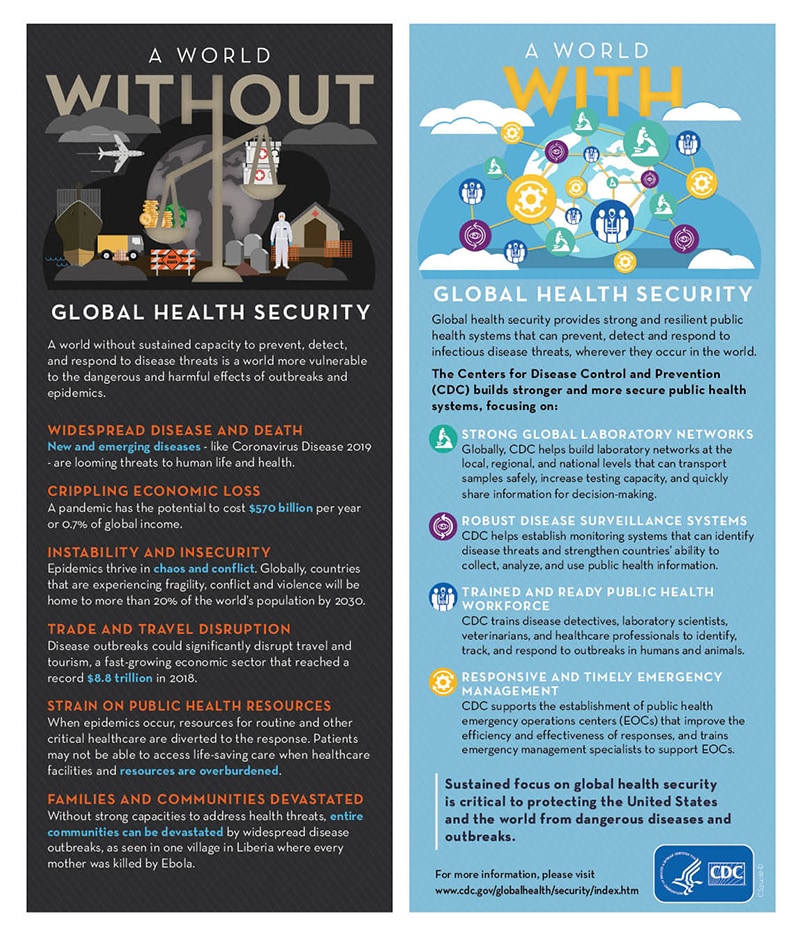A World With and Without Global Health Security

A World Without Global Health Security
A world without sustained capacity to prevent, detect, and respond to disease threats is a world more vulnerable to the dangerous and harmful effects of outbreaks and epidemics.
Widespread Disease and Death
New and emerging diseases – like Coronavirus Disease 2019 – are looming threats to human life and health.
Crippling Economic Loss
A pandemic has the potential to cost $570 billion per year or 0.7% of global income.
Instability and Insecurity
Epidemics thrive in chaos and conflict. Globally, countries that are experiencing fragility, conflict and violence will be home to more than 20% of the world’s population by 2030.
Trade and Travel Disruption
Disease outbreaks could significantly disrupt travel and tourism, a fast-growing economic sector that reached a record $8.8 trillion in 2018.
Strain on Public Health Resources
When epidemics occur, resources for routine and other critical healthcare are diverted to the response. Patients may not be able to access life-saving care when healthcare facilities and resources are overburdened.
Families and Communities Devastated
Without strong capacities to address health threats, entire communities can be devastated by widespread disease outbreaks, as seen in one village in Liberia where every mother was killed by Ebola.
A World With Global Health Security
Global health security provides strong and resilient public health systems that can prevent, detect and respond to infectious disease threats, wherever they occur in the world.
The Centers for Disease Control and Prevention (CDC) builds stronger and more secure public health systems, focusing on:
Strong Global Laboratory Networks
Globally, CDC helps build laboratory networks at the local, regional, and national levels that can transport samples safely, increase testing capacity, and quickly share information for decision-making.
Robust Disease Surveillance Systems
CDC helps establish monitoring systems that can identify disease threats and strengthen countries’ ability to collect, analyze, and use public health information.
Trained and Ready Public Health Workforce
CDC trains disease detectives, laboratory scientists, veterinarians, and healthcare professionals to identify, track, and respond to outbreaks in humans and animals.
Responsive and Timely Emergency Management
CDC supports the establishment of public health emergency operations centers (EOCs) that improve the efficiency and effectiveness of responses, and trains emergency management specialists to support EOCs.
Sustained focus on global health security is critical to protecting the United States and the world from dangerous diseases and outbreaks.
For more information, please visit www.cdc.gov/globalhealth/security/index.htm
A World With and Without Global Health Security